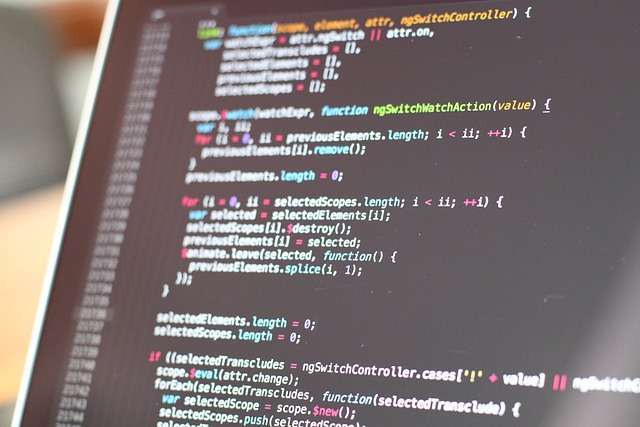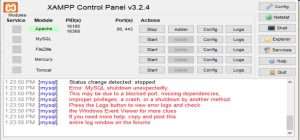Introduction
Embarking on the journey of learning a new programming language can be both exciting and challenging. This guide assumes you are already familiar with at least one programming language, providing a roadmap to make the learning process smoother and more enjoyable.
1. Learn Basics: Learn a New Programming Language
Understanding the fundamentals, such as if-else statements, loops, and functions, is essential. Don’t question why; just embrace the language maker’s choices. Recognize the patterns inherent in these languages, setting the foundation for your learning journey.
2. Think of a Simple Idea: Igniting Creativity
To combat the potential boredom of learning, envision a simple project you recently created in your familiar programming language. Having a tangible goal fuels excitement, making the learning process more engaging and purposeful.
3. Start Building Your Tiny Project: Apply Past Knowledge
Utilize your existing programming knowledge to begin constructing your small project. Expect to encounter various challenges along the way. When faced with hurdles, turn to Google for solutions or seek guidance from your programming-savvy friends.
4. Question Why: Delving Into Deeper Learning
As your tiny project takes shape, start questioning why the language operates in specific ways. Learning becomes more exciting when you understand the inner workings. Rather than mindlessly copying and pasting code, strive to comprehend it. This active approach enhances your coding skills.
5. Make a Good Friend Circle: Learning Together
Establish a supportive friend circle with individuals who share your learning goals. When concepts become challenging, discussing them with friends can provide valuable insights. Sometimes, programming jargon may sound complex, but a friend’s explanation can simplify things.
6. Deciphering Code: Learning Beyond Copy-Pasting
Avoid the trap of blindly copying and pasting code snippets. Instead, aim to understand the logic behind each line. If the code works, take the time to comprehend it. Learning goes beyond replication; it involves understanding the mechanisms at play.
7. The Importance of Community: Seek Help and Collaboration
Engage with the programming community online or offline. Platforms like forums, social media groups, and coding communities can be valuable resources. Share your challenges, seek advice, and collaborate with others on projects. Learning becomes a collective journey.
8. Consistency is Key: Establish a Routine
Learning a new programming language is a gradual process. Set a consistent routine to dedicate time to your studies. Regular practice reinforces your understanding and boosts your confidence.
9. Embrace Challenges: Growth Through Difficulty
Expect challenges and setbacks along the way. Embrace them as opportunities for growth. Overcoming difficulties in programming not only enhances your problem-solving skills but also builds resilience.
10. Document Your Journey: Reflect and Review
Maintain a coding diary or blog to document your learning journey. Reflect on your progress, challenges faced, and solutions discovered. Regular reviews help solidify your understanding and provide a record of your growth.
11. Explore Advanced Concepts: Pushing Boundaries
Once you’ve mastered the basics, explore more advanced concepts. Challenge yourself with complex projects and delve into advanced language features. Pushing your boundaries accelerates your learning and opens new possibilities.
12. Stay Updated: Evolving with Technology
Programming languages evolve, and new features emerge. Stay updated with the latest developments in your chosen language. Follow blogs, attend webinars, and participate in conferences to remain informed about industry trends.
13. Celebrate Milestones: Acknowledge Achievements
Acknowledge and celebrate your milestones. Whether it’s successfully completing a challenging project or mastering a complex concept, recognizing your achievements boosts motivation and fosters a positive learning experience.
14. Join Coding Challenges: Sharpening Skills
Participate in coding challenges and competitions. Platforms like HackerRank, LeetCode, or CodeSignal offer a variety of challenges to test and enhance your coding skills. Engaging in such activities sharpens your problem-solving abilities.
15. Conclusion: Your Coding Odyssey
Learning a new programming language is an ongoing adventure. By following this guide, you’ve laid a solid foundation and embraced the intricacies of coding. Remember, every coding journey is unique, and your perseverance will lead to mastery.
Frequently Asked Questions (FAQs)
- Is it necessary to learn the basics before starting a project?
- Yes, understanding the fundamentals lays a strong foundation for effective learning.
- How do I choose the right programming language for my project?
- Consider the project requirements and community support to make an informed decision.
- Why is building a friend circle important in programming?
- Learning becomes more enjoyable and accessible when you can discuss challenges with friends.
- Should I focus on one language or learn multiple languages simultaneously?
- It’s advisable to master one language before venturing into others, ensuring a strong understanding.
- What role does consistency play in learning a new programming language?
- Consistency establishes a routine, reinforcing your understanding and boosting confidence.
You may love reading about Social Media platform for Marketing





Pingback: Get .com.np domain for Free: A Step-by-Step Guide - Bcapoint